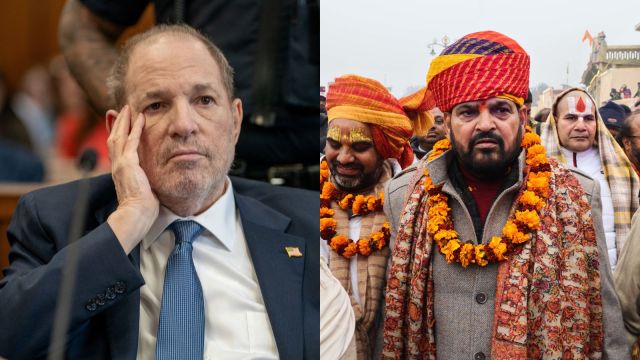
Sometimes we have to realise that the journey for women’s equity in public discourse is not linear, measured by the steps taken, not taken or the two steps taken backwards. It is a constant churn in a systemic process that must squeeze out latent misogyny. Women around the world have begun to understand that. That’s why, despite repression or regression, women’s movements are only gathering steam on a slow burn.
The incarceration of many human rights activists before her didn’t stop 29-year-old Saudi activist Manahel al-Otaibi from propagating women’s equity or rejecting male guardianship through the hashtag #societyisready. And as she spends her time in jail, support for her is bubbling up globally. Iranian women got support from marginalised women in Afghanistan. They even fearlessly resurrected the Kurdish women’s movement chant of “Women, Freedom, Life!” and galvanised it as a mantra for all women to speak up. Women in Mexico are helping their US counterparts negotiate abortion bans. Meanwhile a Chilean protest song, ‘The Rapist Is You’, has become a collective chant on violence against women everywhere across the world.
There will be comeuppance for the likes of Harvey Weinstein, the Hollywood producer who is in jail for sexual assault following a slew of testimonies that spurred the #MeToo movement. There will also be patriarchal mockery of the kind that legitimises former Wrestling Federation of India chief Brij Bhushan Singh through the backdoor. His son just got a BJP ticket to contest Lok Sabha elections from UP, keeping the family’s power privileges intact while riding roughshod over concerns of champion women wrestlers. Yet every male-dominated establishment will espouse how much they are committed to women’s equity.
Truth is, the term “women’s empowerment” is the hand-me-down of an egotistical male largesse or guilt-tripping. The agency never lies with the women, who are never asked what they want, but who are given what men think they need as a dole. If anything, it only ingrains in women a sense of powerlessness. Besides, traditional cultures have always upheld inequity as a norm rather than the exception.
That’s why women have to be more strategic than exceptional, stay within the system and fight their way to leadership, earn it on their terms and never exit midway. If they quit, that would be the real end-of-the-road dreariness, worse, hopelessness.
Nowhere else is this more apparent than in the workplace where sexual harassment, despite redressal mechanisms in place, has seen women survivors leave their jobs, unable to deal with mental scarring and sidelining besides the judgmental gaze and curiosity of colleagues. However, by giving up, they would be relinquishing their stakeholdership to leadership. With a handful of women in senior management, any form of harassment or discrimination will never be acknowledged and addressed as an organisational problem. It will be seen as an aberration and worse, a liability, and justify the male argument about the muscularity of the top job.
Sexual harassment is never about physical desire but a coercive tool to eliminate women competitors, who, statistics show are outperforming men, even in domains considered bastions of male expertise. This pushback by sexualising women co-workers then is also about a reluctance to cede territory and reclaim it with greater ferocity. This bullying is a larger societal collision that already has disastrous consequences of not only browbeating the survivor but the ecosystem around her. The scales can turn only when the redressal mechanism, be it at home or the workplace, treats the sexual harasser as both a social and economic liability. The lens has to change from “protecting” women to “punishing” abusive oppressors. An existing male leadership cannot turn the wheel as much. A female leadership is needed for that countervailing push.
According to UN Women reports, there are gaping holes in women’s leadership. With just 27 per cent of parliamentary seats, 36 per cent of local government seats, and 28 per cent of management positions held by women, the decision-making process continues to be disempowering. “A staggering 8 per cent of the global female population survives on less than $2.15 a day… Only 61 per cent of prime working-age women participate in the labour force, compared to 91 per cent of prime working-age men…By 2050, women globally will still be spending 9.5 per cent more time (2.3 more hours per day) on unpaid care work than men…At least 28 countries do not have laws granting women equal rights to enter marriage and initiate divorce, and 67 countries lack laws prohibiting direct and indirect discrimination against women,” it says.
This is not just about the gender divide. Women are taking on a bigger battle of reversing normative behaviour, a far tougher climb that men have never had to negotiate or know about. And for that, women need to push back collectively, not become another dropout or a beneficiary.
rinku.ghosh@expressindia.com
© The Indian Express Pvt Ltd
First uploaded on: 04-05-2024 at 16:18 IST


